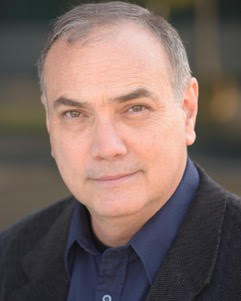
The collapse of the Soviet Union, the rise of Putin in Russia and the examination of the United States’ relationship to Russia, then and now, converge in Kenneth Lin’s powerful drama “Kleptocracy.”
Going right to the heart of the greed and manipulation that is behind power, Arena Stage’s Artistic Director Molly Smith says that “Kleptocracy” is “the most dangerous play at Arena this season.” The play is slated to run through Feb. 24.
The following is an interview with actor Elliott Bales, who plays Petukhov/Prison Guard. Bales has an extensive list of theater credits over his career and retired as an Army Colonel after 26 years of service.
“Kleptocracy” spans from the 1990s with the dissolving of the USSR up through the 21st century when Putin rose to power. Where were you stationed during those years? What did you think as these events were happening?
In the mid to late 80’s I was a wet-behind-the-ears shaved-tail Army Lieutenant in West Germany in the 3rd Armored Division positioned to repel a Soviet invasion of western Europe. My days were filled with studying, learning, and thinking about the Soviets, how to beat them on the battlefield and the Russian way of life.
In November 1989, I was in Frankfurt with a military delegation when the Berlin wall was opened and everything began to change.
After decades of certainty about the world order and the stability of knowing your “enemy,” the turmoil inside a different Russia mirrored the uncertainty in the world around it.
In a dramatic reversal, I found myself back in a unified Germany and later in Bosnia during the 1990s as the executive officer for a battalion task force in the Stabilization Force in Bosnia following the Bosnian civil war.
One of the brigades allied with my headquarters, the US 1st Armored Division, was a Russian airborne brigade. At the base camp we had a Russian liaison team helping to share information and coordinate activities.
It was a very bizarre feeling to sit down and eat with a former “enemy” in a US-run dining facility.
There were a number of stories from that time that were indicative of a microcosm of what was happening in Russia. I will just say that Ken Lin’s play accurately mirrors the attitudes and experiences on the larger Russian stage that I saw play out in Northern Bosnia.
What’s it like to be part of a powerful production about politics on stage with all the drama that is happening in the public arena today?
Exciting. While “Kleptocracy” deals with the contemporary version of the Great Game, the geopolitical statecraft and political machinations, it’s been even more exciting to move beyond the trappings of the narrative to understand the motivations of the characters in the story.
And in doing so, it’s delved into the “riddle, wrapped in a mystery, inside an enigma” that isn’t just Russia, but is the inner workings of any enterprise and the people who make it up.
What is it like to develop a new character like Petukhov?
Playing a historical character always means starting with what is known. In the case of Vladimir Petukhov, we know only a few things in the West…mostly that he was murdered early in the days of privatization of Russian state-run companies.
But the role he plays in this story also has significant implications as well as overtones that reverberate through the lessons of the play itself.
What’s it like to work with the playwright for this new work?
Sitting in the room with Mr. Lin means an ongoing dialogue about the character and what he says and what he does to serve the play. I have to say I pinch myself a lot to be reminded that I am not dreaming about this opportunity.
Did you ever think when you were at the National War College that one day you would be acting a mile away at Arena Stage?
No time did I think during my days as a Warrior at the National War College that I would act, much less at such a prestigious place as Arena!
What advice would you give to others who have more than one career in a lifetime?
For me the key to finding and pursuing a second or third career is to start thinking about possibilities rather than constraints. The value of an individual’s experience like networking, discipline and analysis from one career is the exact set of skills needed to enter a new profession with impact.
The greatest advice I can offer is to trust yourself when taking a leap into the deep end of that next career pool.
By Sheila Wickouski

